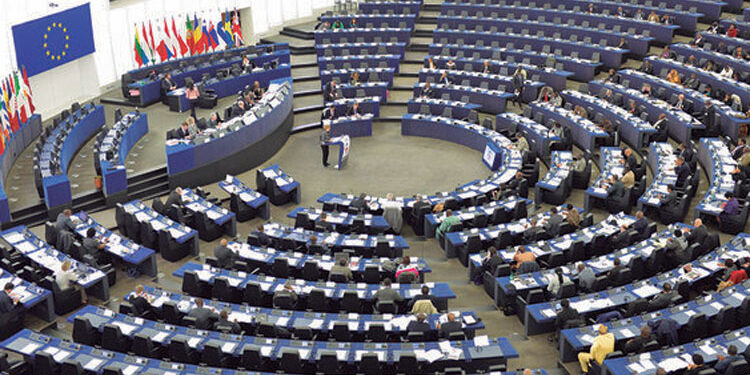Aquí Europa-The Diplomat
The PP is set to experience significant vote growth in the June European elections, surpassing the PSOE (which is down slightly) by five seats and nine points and at the expense of Ciudadanos, which disappears from the European Parliament, according to the Europe Elects projection, which provides an indication of how voters in the European Union would vote if there were elections to the European Parliament today based on polls published in EU countries.
According to the data for Spain, whose European elections will be held on June 9 and which will have 61 seats in the next legislature (two more than in the previous one), the PP would almost double its number of seats, going from the current thirteen to the 25 predicted by the survey (with 38% of the votes, almost 18 points more than in 2019), and would be nine points ahead of the PSOE, which would lose one seat (from 21 to 20) and would drop just over two points (with 29% of the votes, compared to 33% in 2019). Vox would be placed as the third force (from four to seven) and Sumar would enter the European Parliament for the first time with three seats, at the expense of Podemos, which would go from six to one. Ciudadanos would go from eight to no seats.
For the EU as a whole, according to Europe Elects’ projection in December 2023, for the first time in the last four years there would be a reshuffling of what would be the top three groups in the European Parliament. Only in December 2019, the Reformists and Conservatives ECR group was briefly in third place, but, this time, the other right-wing Identity and Democracy ID party moves into one of the top positions.
The leading group and winner of the elections remains the center-right European People’s Party (EPP), which gained four seats to reach 179, its best result in almost two years. They are followed by the center-left Progressive Alliance of Socialists and Democrats (S&D), which is unchanged from last month and holds 141 seats. Renew Europe (RE), the centrist-liberal group, suffered the biggest loss this month. They are expected to lose five seats, their second consecutive defeat. This leaves them with only 84 seats, their weakest result since the party was founded. It also means that they would now become the fourth largest group in the European Parliament.
Together, the three parties, which form a loose coalition in the European Parliament, now have 404 of 705 seats, a comfortable absolute majority with one seat less than last month.
As noted, the third largest group would be Identity and Democracy (ID). After overtaking ECR last month, the far-right group has now also overtaken the Renew Europe liberals. They gained six seats in the Europe Elects projection and now have 93 seats, the highest number in their history. The nationally conservative European Conservatives and Reformists (ECR), on the other hand, have lost two seats to 81.
On the left, the Greens/European Free Alliance (G/EFA) are expected to win 49 seats, down two from last month, while the GUE/NGL (LEFT) group is expected to lose another seat, leaving it with 36 seats, its all-time low. The Non-attached (NI) would have two fewer seats and now have 52, and the unaffiliated parties are expected to have six seats, an increase of two.
These figures show that, with a 95% confidence rating, the EPP would take first place and S&D second if an election were held this month. Third place is up for grabs for three groups: ID, RE and ECR are too closely matched to have a clear outcome at this stage. Places six and seven would go to NI or G/EFA, as both are also projected at similar levels. The eighth largest group would be the LEFT, and the smallest of all would be the unaffiliated parties, which are not currently represented in the European Parliament.







